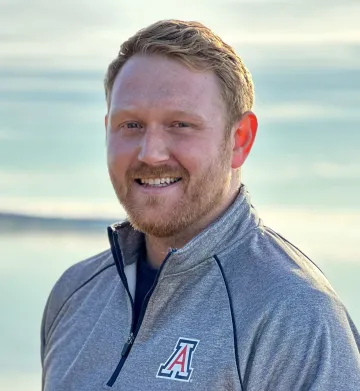When
Abstract
The full realization of the biotechnological potential of environmental microbes has two essential prerequisites: (i) the ability to culture a representative selection of microbes present in any given environment; and (ii) the ability to modulate gene expression effectively to induce Natural Product biosynthesis. It is generally accepted that only a small fraction (0.01-1%) of environmental microbes can be cultured using current standard isolation techniques. Similarly, only a fraction of the metabolic potential of a given microbe is expressed using standard culturing methods. Through the hyphenation of bio-fabrication and microbial encapsulation, we allow chemical communication to occur whilst harnessing host-symbiont relationships. microfluidics has the potential to create a new platform for natural product discovery, allowing access to a vast array of chemical space currently unattainable, leading to the much-needed discovery of new bioactive compounds
Presenter
Dr. Christopher Cartmell
Research Assistant Professor, Pharmacology, The University of Arizona
Biosketch

Dr Christopher Cartmell is a natural product chemist who currently works as a Research Assistant Professor at the University of Arizona. His academic career began at Bangor University in North Wales which included an exchange to the University of Trieste, Italy. He was initially trained in classic organic synthesis working on the synthesis of toxic marine natural products. Cartmell was awarded both the Peboc and SCI regional prizes for best degree in the region. After completion of his undergraduate degree, Cartmell moved to the University of St. Andrews, Scotland to undertake a Ph.D. focusing on new methods for natural product analogue generation, working at the interface of organic chemistry and molecular biology.
Cartmell was awarded a MITACS Accelerate Postdoctoral Fellowship where he moved to the University of Prince Edward Island, Canada working in collaboration with Nautilus Bioscience, Croda. His research focused on the discovery of new marine natural products through in-situ cultivation, combining bio-fabrication, microfluidics, and natural product chemistry to tackle the Great Plate Count Anomaly. He was then hired as an Associate Research Scientist at Northeastern University, Boston before finally moving to the University of Arizona. With a keen interest in the marine environment, he utilizes SCUBA in the search for new bioactive molecules, focusing on harnessing host-symbiont relationships within marine invertebrates through microfluidic encapsulation. A further strand of his research aims to look at venoms for use in the treatment of chronic pain as non-addictive, non-opioid drug.
Hosted by: Dr. Robin Polt






